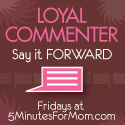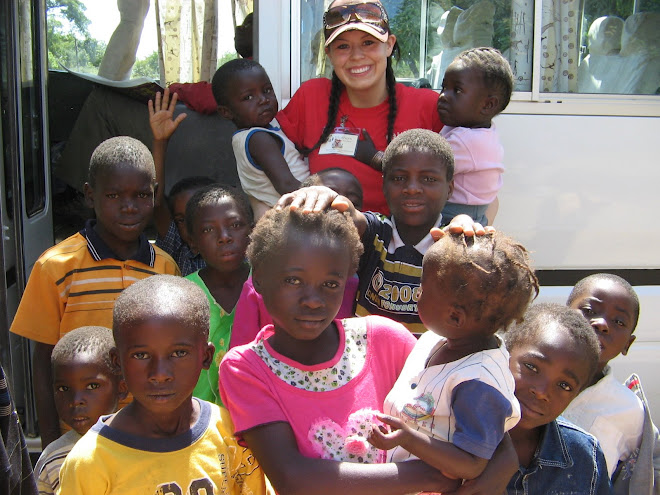
Telling stories has been a part of Kindal Debenham’s life ever since he first put down a book, looked around and asked himself ‘But what happened next?’ That question led him to write his own stories to find the answer he was looking for, and from then on he was hooked. Writing became a passion that followed him through school and led him to the writing group where he met his incredible wife-to-be, Emily. Somehow, she continues to tolerate him, and they recently had their first baby girl, born in March 2011. Writing has brought him this far, and he hopes it will continue to accompany him for the rest of his life. He’s still trying to find the answer to what happens next, and he is grateful to all those who are supporting him in his journey. Thanks for your support, and he hopes you enjoy the story!

About the book:
Ensign Jacob Hull never intended to be a hero. As a newly commissioned officer in the Celostian Navy, his goal was to serve well until the day he could retire. Then disaster strikes on his first cruise aboard the CNS Wolfhound, and he will have to display all the courage, skill and determination he has in order to keep the remaining crew members out of danger. Because if he does not, the only ones to tell the tale will be prisoners of war—if there are any left at all.
My Interview with Kindal:
M.B.: When did you first know you wanted to be an author?
AUTHOR: Well, I’ve always had the dream to become an author. I have always loved to tell stories, and my first real book was one I tried to write and refine as a high school student. As for when I decided to try to be a professional author instead of just writing in my spare time, that choice came much more recently. Basically it took me trying two different career paths and realizing that the only thing I was going to get excited about doing for the rest of my life was writing. And so here we are!
M.B.: What is your writing and educational background?
AUTHOR: I graduated in Molecular Biology from Brigham Young University. As you might imagine, that gives me a bit more of a scientific outlook when I’m writing a story. As for my writing background, besides the tinkering I did in high school, I took just about every creative writing class I could fit into my schedule. I was also a part of a writing group set up by a local science fiction and fantasy club at BYU, named Quark. That kind of formed the basis for my writing up until now.
M.B.: What makes you passionate about writing?
AUTHOR: It’s a combination of things, really. Writing is one of the best ways to explore new ideas and concepts, and I love the feeling of creating a totally new world for my characters to run around in. The independence a writing career gives me is incredibly nice as well. Not having to accommodate other people’s concerns or schedules just to do my work is a really big bonus as well. Combine all of that with the sense of satisfaction that you get when you finish a good story and the enjoyment that other people can get out of it, and there’s no better career path than this one for me.
M.B.: What was the pathway like for you to get your first book published?
AUTHOR: As an independent author, it was a bit different than what I assume most writers would go through. While I didn’t have to wait for agent responses or negotiate contracts with publishers, I did need to find my own cover artist and copy editor, and will need to market my own book. I was fortunate that my wife Emily is such an able manager. Her brother, Paul Hamblin, was the genius behind our book cover, and we’ve managed to organize everything else as well.
M.B.: I really love the cover. It really helps set up the story. So, were you ever discouraged along the way? If so, how did you deal with it?
AUTHOR: Part of writing is getting discouraged every now and then. The fact is, most people are going to look at you like you’re a bit crazy, and to be honest most of us are. Rejection can get pretty rough sometimes as people disagree with the way you are writing something, or want to ‘help’ you choose an alternate, more profitable career path. That’s just how it goes.
In dealing with that sort of thing, I’ve found it useful to keep in mind that there is discouragement and obstacles in every career path. For every starving writers and artists out there, there are just as many doctors and lawyers scraping the bottom of the barrel or dropping out to pursue other careers. You have to remind yourself that not everyone is going to like what you write, and that not everyone is going to appreciate what you’re trying to do and how. The important thing is to remain committed to your course and find your own way through the obstacles you face. Don’t let a few failures ruin your vision.
M.B.: What is your writing schedule like?
AUTHOR: I think that depends on your point of view. My wife thinks I’m mildly crazy, but I’m betting people like Brandon Sanderson wouldn’t be very impressed. I typically write about twelve thousand new words a week when I am working on just one book. Most of the time I tend to be rewriting one book while I write the first draft of another one. That means I usually write about six to eight thousand new words on one book while I rewrite about ten to twelve thousand words on another one. I’d write more, but the full time job kind of takes up too much of my time for that to work.
M.B.: That's some serious discipline. I'm impressed! Where do your ideas come from? How do you know the idea is
good enough to write a book about it?
AUTHOR: Basically, if I’m excited to read my own story I decide it will be good enough to write about. After all, if I’m not excited about it than no one else will be either. I grab my ideas from anywhere I can, really. Articles I find that pique my interest, concepts I discover in other people’s writing, even the occasional song on the radio. Most of my best ones come from a combination of ideas that I found interesting. Things just kind of all fit together sometimes, and out comes a new idea.
M.B.: When did the idea for this book first come to you?
AUTHOR: Well, there wasn’t really a specific moment when Wolfhound came together for me. It was actually much more of a progress, or maybe a recipe. I started out with an idea for a science fiction book based around some of the heroes I’d learned about when I was young. I threw in some ideas from the USS Constitution and the War of 1812, as well as some other themes I was thinking about at the time. It all kind of mixed together well.
M.B.: What do you hope readers will get from this book?
AUTHOR: Well, I wrote Wolfhound at a time when I was feeling a bit discouraged at the course my life was taking. In essence, it is a story about how someone can face all the obstacles and disasters that this life can throw at us, and how that person can choose to rise above those challenges instead of being crushed by them. In a way, that’s what I came away with from writing Wolfhound, and I would hope that my readers are able to have that as well. Along with an intense appreciation for railguns and explosions, of course.
M.B.: What is your process of brainstorming a story? Do you just sit down and write, waiting to see what happens next? Or do you outline first?
AUTHOR: I come up with a lot of story ideas a bit out of the blue. I typically have a bunch of facts, possible plots and story ideas all running through my head, and occasionally some of them just happen to mix together and form an idea compelling enough that I have to write it down. From there, I tend to sketch out a rough outline of where I am going to go with the story, but I never consider myself bound to it. If the story starts to bend a bit out of line from where I was originally going to go with it, I let it happen. Writing is always at least half structured planning and half lucky discovery for me.
M.B.: Do you ever experience a snag in a story, a form of writer's block? If so, how do you deal with it?
AUTHOR: I hit writer’s block for one of three reasons. Either I’ve burned out, I don’t know where I’m going next, or the previous section is bad enough that I need to rewrite it before I move on. Burning out is a result of my own reckless behavior; I’m still new enough at this career path that I look at a project and say “Hey, I can work a full time job and still revise half a book this week.” It…doesn’t always work out that well. Rest can really help with that problem. If I don’t know where I am going next, it is a very good time to sit down and sketch out a better outline of where the story will go, which will get me excited enough to start in again. As for writing the occasional bad section, that happens every so often when I am working on a first draft. It’s like replacing a bad foundation so that the rest of your building can stand strong.
M.B.: Do you need absolute quiet to write? Do you listen to music when you are writing?
AUTHOR: I don’t need absolute quiet to write—if I did there wouldn’t be much opportunity for me to get anything done! Occasionally I do listen to music. Certain songs can help me to get into a particular perspective for my stories and characters.
M.B.: What kinds of inspiration do you use during your story creation periods?
AUTHOR: Inspiration from music, history and other works of literature are typically what I try to draw on. I’ve tried to draw on the people I see as the heroes of the past in order to create my characters, and the stories of people who have faced the kind of challenges that my characters have to face are a big help in that way. Coupled with the right kind of a theme song, it can really create something that is interesting to read.
M.B.: Who has made the greatest difference for you as a writer?
AUTHOR: My wife. Without her none of my efforts would have ever amounted to much. She’s the one who has always encouraged me in this career path, and she has never questioned my ability to do what needed to be done. Of course, she also seems to have ended up with the marketing brains as well, so that helps me be able to focus on the writing while she helps me that way.
M.B.: What’s your secret to making the character’s in your books come to life?
AUTHOR: Practice. Lots and lots of practice. Along with some very, very patient editors. I’ve also found that the more I talk with other people and interact with them on a social level, my dialogue improves. Working in the emergency room can provide the opportunity to talk to a lot of different people, so that may have helped.
M.B.: Do you use a critique group during the writing process? Why or why not?
AUTHOR: Absolutely. The writing group that I have now is crucial to me as I’m trying to refine my work. Each person that reads my rougher drafts provides a good perspective on how the book can improve, and it really helps to get the words looked over by someone who isn’t making the same assumptions that I am about what I’ve actually written.
The other reason I’ve appreciated my writing group so much is the support. It makes a world of difference when you have a group of people actually interested in your crappy story. When someone tells you that they really enjoyed something you’ve written, it gives you a wonderful burst of enthusiasm to tackle to next part of the story. That alone makes the group worth it.
M.B.: Which of your books is your favorite, and why?
AUTHOR: Honestly, it depends on the mood I’m in. Wolfhound and its sequel, Badger, are good for when I want a rough and tumble science fiction adventure. Iron Angels works when I want a story with giant space robots and relationship issues. The Hector Kingsley series sates any need that I have for Victorian prose, steampunk ingenuity, and sarcasm flavored intrigue. I don’t think it’s any coincidence that my mood tends to effect what I’m working on, now that I think about it.
M.B.: What is something about yourself people don’t know?
AUTHOR: I place next to no importance on being called the correct name. I once spent an entire semester of college being called Paul. Okay, so it was just the one class, but the pattern kind of continues from there. For instance, my Quark writing group—including my future, lovely wife—only knew me by the name Jakeson for the first three months I attended. That’s probably more the effect of having a weird first name that lots of people pronounce wrong though.
M.B.: What is your favorite snack to have while you are writing?
AUTHOR: Popcorn. Contributes to the cinematic flow of my writing. ☺
M.B.: LOL! What words of advice do you have for other writers who desire to have their manuscripts become books in print?
AUTHOR: Don’t give up, and don’t overlook the opportunities you are given. There are plenty of people willing to help you learn what you need to know, and the nature of publishing today is open enough that anyone who is willing to work hard enough at it will have at least some success. Just don’t let the occasional failure or discouraging friend turn you away from what you really love.
M.B.: What are you working on now?
AUTHOR: I’ve just finished the second draft of Badger, the sequel to Wolfhound. Now I’m working on the second book of the Hector Kingsley series, a steampunk detective novel called The Continued Adventures of Hector Kingsley: Mysteries in Whitechapel. I’m also trying to revise another book called Iron Angels at the same time. As you can see, I keep myself a little bit busy.
M.B.: Any final words you would like to share
AUTHOR: Just thanks for the interview! I really appreciate the chance to talk about my work. Anyone else interested in what I’m up to can visit my blog at www.platmeusa.blogspot.com. Hope all goes well for you!
M.B.: Where can our readers go to find your books and order them?
AUTHOR: Wolfhound will be going up on Smashwords and Amazon. People can also order my books through Wandering Leaf Publishing’s website. The book will go up on November 28th.
My thanks to Paul Jakeson Kindal Debenham! Check out his blog and watch for the release of this amazing book!





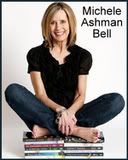
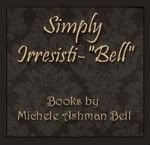





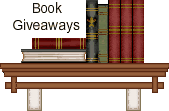













































-page-001.jpg)












